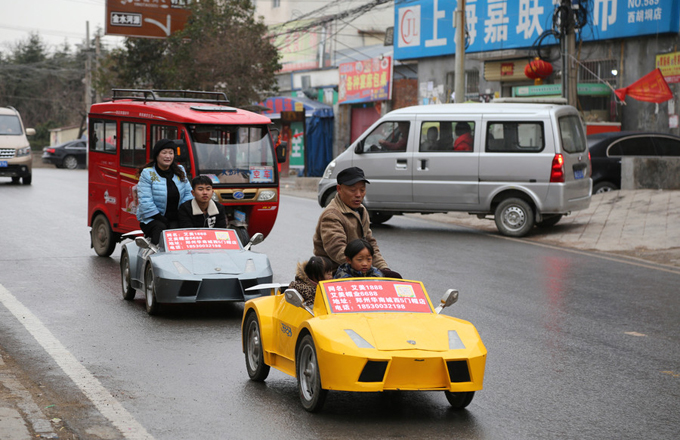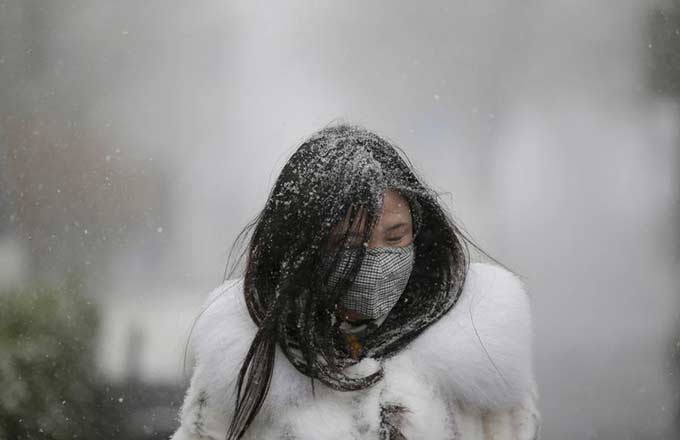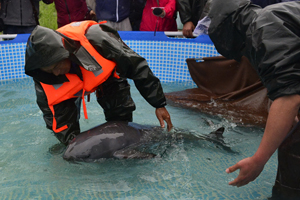Avian flu quiets song in bird market




Trading of live poultry suspended following deaths, report Shan Juan and He Na in Beijing, and Wang Hongyi in Shanghai.
Few stalls were open on Sunday in Shanghai's Wanshang flower and bird market in the wake of deaths from the H7N9 strain of bird flu. Sunday is usually the busiest day of the week as bird lovers of all ages wander around and listen to the chorus of thousands of birds.
On April 6, the local government ordered the suspension of all trading in live poultry and pet birds, but so far there has been no official directive to close the market.
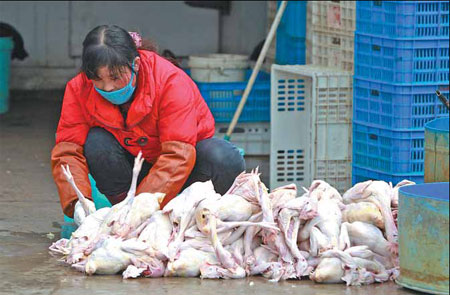 |
|
The trade in live poultry has been suspended in the cities of Shanghai, Nanjing and Hangzhou. You You / for China Daily |
In addition to Shanghai, the trade in live poultry has also been suspended in the cities of Nanjing and Hangzhou. Meanwhile, the rest of the country looks on nervously.
Investigations conducted by the Ministry of Agriculture to determine the source of H7N9 have shown that the strain is prevalent at live poultry markets in the affected areas, but so far it has not yet been detected at poultry farms.
The possibility that the virus was brought into the country by migrant birds could not be ruled out so far, said Yu Kangzhen, China's chief veterinarian with the Ministry of Agriculture.
The first death from the strain was reported on March 2. As of Sunday, there were 21 confirmed cases, 12 of them severe and two mild, and six people have died, according to official statistics.
So far, the areas affected are the municipality of Shanghai and the provinces of Zhejiang, Jiangsu, and Anhui.
Most of the infected patients have developed severe pneumonia, according to the World Health Organization, and other symptoms include fever, coughing and shortness of breath.
"Because the health authorities have ordered nationwide investigations into cases of pneumonia with unknown causes, more cases (of H7N9) are likely to emerge," said Feng Zijian, director of the health emergency center at the Chinese Center for Disease Control and Prevention.
To facilitate the investigations, domestically developed quick-testing kits have been distributed nationwide.
The authorities have asked all health institutions across the country to report suspected and confirmed cases directly to the national health commission within two hours of detection. Details of local conditions have to be reported daily, said Shu Yuelong, director of the Chinese National Influenza Center.
Moreover, a circular from the National Health and Family Planning Commission prohibits hospitals from delaying or denying treatment to H7N9 patients because of financial reasons.
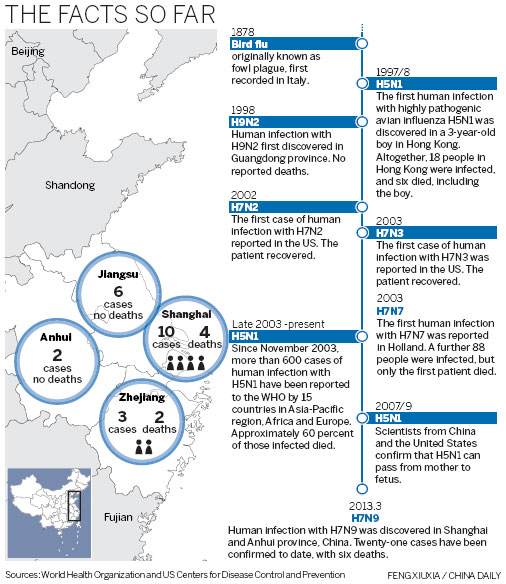
"Suspected cases can be screened within 15 minutes, thanks to the new testing reagents. However, we don't test those patients who only have a fever, because that would waste manpower and resources," said Wang Yan, a respiratory specialist at the fever clinic of the China-Japan Friendship Hospital in Beijing who was also at the forefront of the fight against SARS in 2003.
Based on clinical experience and the patient's symptoms, "we will only ask people that have had contact with poultry, come from an infected area, or have had contact with patients or people who have recently exhibited suspected symptoms, to undergo the test," she said.
According to Shu, a number of routine flu prevention mechanisms were established in the wake of the SARS outbreak. The mechanisms comprise a complete set of testing equipment, methods and emergency plans.
To cope with a potential outbreak, "our hospital has also improved special training for medical staff in the prevention of bird flu and treatment", said Wang.
She advised people with serious flu-like symptoms to consult a doctor as soon as possible, because the first 24 hours after the onset of H7N9 are crucial for effective treatment.

